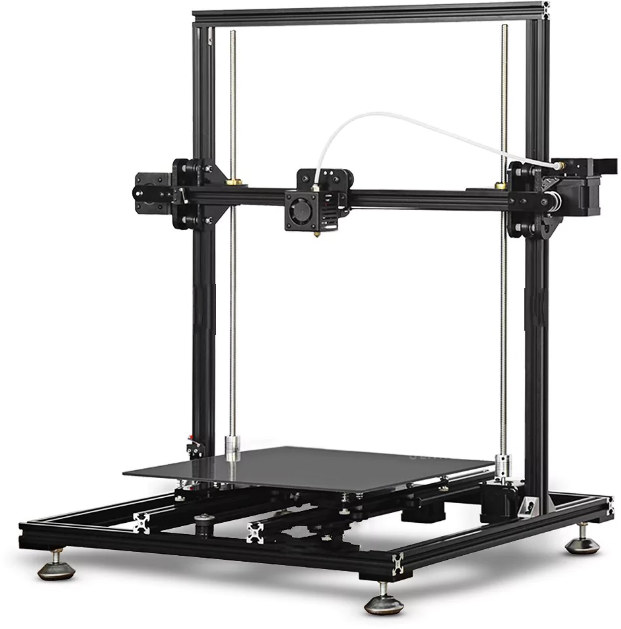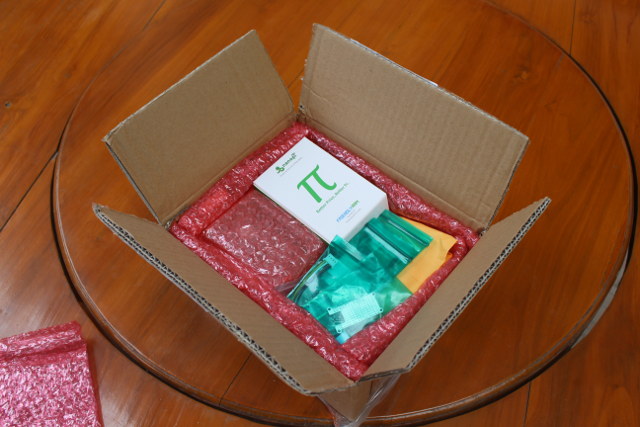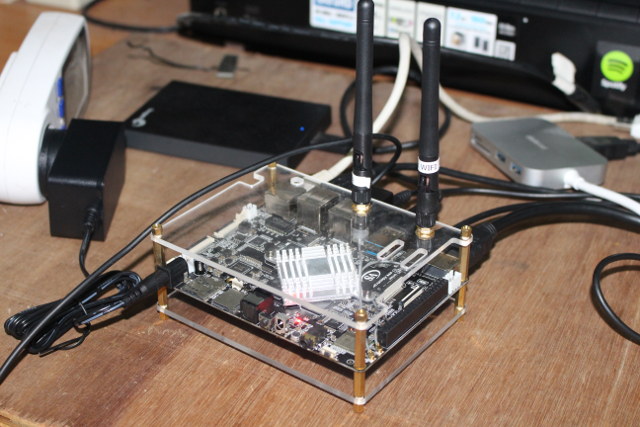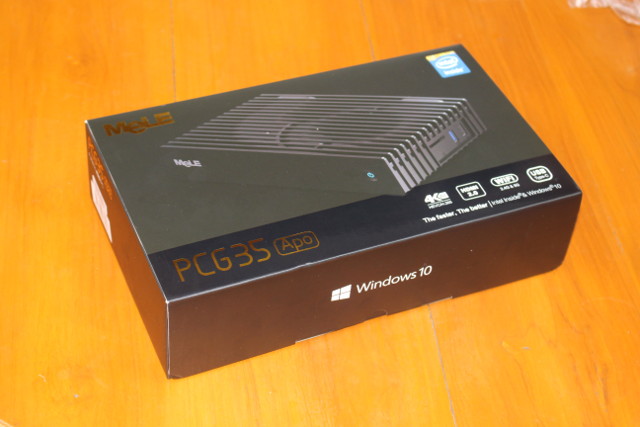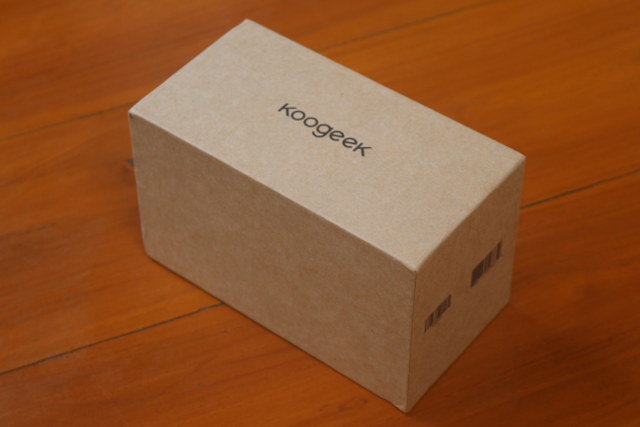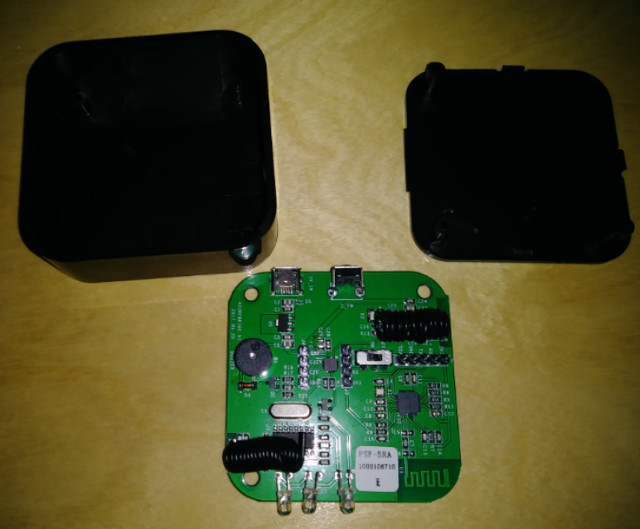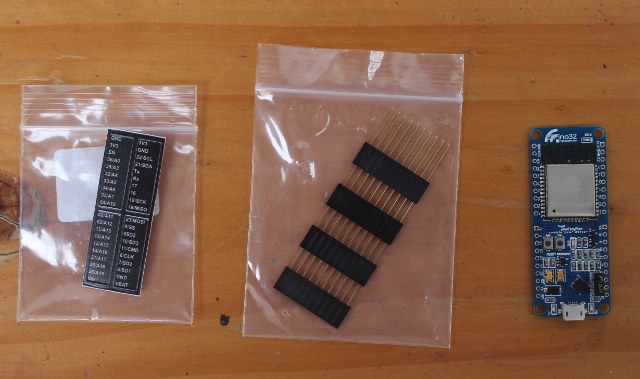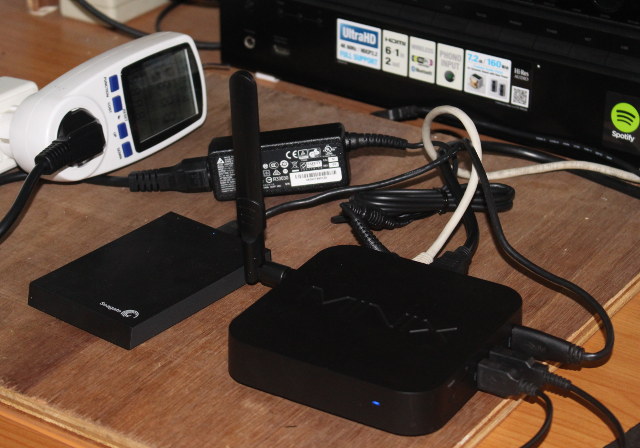Karl here with part 1 of Tronxy X3S build. It is another large volume printer to fully assemble on your own. Taking between 8-10 hours to put together. I have high hopes for this printer. Key things I like: metal frame, dual X, large build volume. Just from looking at it I don’t like the fact that it has no parts cooler but is easy to remedy. Tronxy X3S Specifications Let’s look at some specs. 300 x 300 x 400 mm hot bed (Actually get 330x330x400 build volume) Hot bed temperature: 40 – 110 Deg.C Nozzle temperature: 170-275 Degree Marlin 1.1.5 Frame material: Aluminum Extrusion I have not taken the hotend apart yet so not sure about the nozzle temperature going over 245°C. I will take it apart for the next part. If you are not familiar you don’t want to get lined nozzles above 245°C, or the lining starts […]
NanoPi Duo Starter Kit Review – Part 1: Unboxing and Assembly
NanoPi Duo is an inexpensive Allwinner H2+ quad core board with 256MB or 512MB RAM that can fit into a breadboard, and FriendELEC also provides a starter kit with a carrier board, heatsink, enclosure, USB debug board and cable, as well as optional accessories such as an half-length SSD drive. The company sent me two kits for review, so I’ll first check out what I got, and show how to assemble the kit, before actually playing with the board and kit next month. NanoPi Duo Starter Kit Unboxing I got a bunch of boxes and bubble wraps in the package… … and indeed received two identical kits. Each kit comes with a NanoPi Duo board with soldered headers, a mini Shield for NanoPi Duo, a heatsink and thermal pad set, a micro USB to USB cable, a USB to TTL debug board and cable, and acrylic case, and user manuals […]
Checking Out Debian and Linux SDK for VideoStrong VS-RD-RK3399 Board
VideoStrong VS-RD-RK3399 (aka VS-RK3399) is a features-packed development board powered by Rockchip RK3399 hexa core core processor which offers an alternative to Firefly-RK3399 board. The company sent me a development kit for evaluation, and I’ve already looked into VS-RD-RK3399 hardware and SDK in the first part of the review. Today, after shortly looking into the pre-installed Android 7.1 OS to make sure the board boots fine, I’ll report my experience with Debian 9, and building it from source. A Quick Look at Android 7.1 I connected the board to my HDMI TV, added an Ethernet cable, and after powering it, VS-RK3399 promptly booted into Android 7.1 with the following launched. It just has a few apps pre-installed, and lack Google Play store, but as I’ve seen in the new version of the SDK, a patch for Google Play store is provided, if that’s something you need for your use case. […]
MeLE PCG35 Apo mini PC Review – Part 1: Unboxing, Teardown, and M.2 SSD / SATA HDD Installation
MeLE PCG35 Apo is a mini PC powered by Intel Pentium J3455, one of the most powerful Intel processors from Apollo Lake family, coupled with 4GB LPDDR3, 32GB eMMC flash and support for M.2 SSD and 2.5″ SATA HDD/SSD. The company sent me a sample for review, and I’ll start by taking photos of the device, accessories, and internal design, as well as showing how to install an M.2 SSD and 2.5″ SATA drive, before publishing the second part of the review with Windows 10 at the end of next month. MeLE PCG35 Apo Unboxing The mini PC comes with the usual black package with gold fonts the company has used us to. The side shows the main specifications of the fanless mini PC. The mini PC, which comes with an aluminum heatsink shaped as number 6, ships with a 12V/2A power supply plus UK, AU, US, and EU plug […]
Review of Koogeek BP2 Bluetooth Blood Pressure Monitor
Koogeek BP2 is an FDA approved smart blood pressure monitor that connects over Bluetooth to your Android or iOS smartphone, or WiFi to the cloud. The company sent me a sample for evaluation, so let’s get started right away. Koogeek BP2 Unboxing The device is sent in a cardboard package with Koogeek brand… and some more derails about the specifications on the bottom of the package. I asked the company to confirm about FDA approval, and they told me to look for K134029 on the FDA website, which lead me to this document testing Shenzhen Belter Health Management and Analysis ePA-46B, and comparing it to the results of Omron HEM-7200-Z (BP742) with the conclusion being that: The Belter Blood pressure meter (ePA-46B) is substantially equivalent to the predicate devices. Koogeek BP2 is the same as Belter ePA-46B, but just rebranded, and with a different mobile app. In the package will find […]
Review of Sonoff RF Bridge, Sonoff 4ch Pro, and Sonoff POW with Sonoff-Tasmota Firmware
Karl here. Today we are going to look at 2 new and one older Sonoff devices. Sonoff RF Bridge – $9.90 433MHz RF to WiFi Bridge Sonoff 4ch Pro – 4 Gang WiFi RF Smart Switch Sonoff POW – Wireless switch with power metering capabilities I spent very little time with the stock firmware on the device. I don’t like the fact that an Internet connection is needed, and I am not in control. As of the time of this writing I found the Ewelink was not configurable enough to meet my needs. There is one feature that is really nice that I could easily see keeping stock firmware. It is the Alexa Skill. It worked. I am also currently reviewing Vobot Smart Alarm Clock with Alexa integration and had no trouble controlling the Sonoff devices with Alexa. But unfortunately I am lazy and want everything automatic so I can’t […]
Getting Started with Espruino & JavaScript on ESP32 with ESPino32 Board
Venus Supply Co., Ltd, better known as ThaiEasyElec, is a company based in Thailand, selling embedded systems and development board, as well as providing development services based in Thailand. The company sent me their latest board called ESPino32 powered by Espressif ESP-WROOM-32 WiFi and Bluetooth module for evaluation. While the board is supported in Arduino-esp32, I’ve already tested Arduino with ESP32-Bit module & ESP32-T board, so after checking out the hardware, I’ll load it with something different: Espruino, a firmware allowing for JavaScript programming over the serial console, or a Web based IDE. ESPino32 Unboxing and Soldering The board shipped with four female headers, and I/O stickers. The board includes ESP-WROOM-32, exposes I/Os through four 10-pin headers, features CP2104 chip for serial to USB debugging via micro USB port, two buttons (reset and program), a user LED connected to IO16, and a jumper to select between regulated power supply (micro […]
MINIX NEO Z83-4 Pro Mini PC Review – Part 2: Windows 10 Pro
MINIX launched NEO Z83-4 Cherry Trail mini PC last year, but the company has now launched NEO Z83-4 Pro, an updated version with a slightly faster Atom X5-Z8350 processor, Windows 10 Pro (instead of Home), and a a VESA mount kit. I’ve already checked the hardware in the first part of the review, so today I’ll report my experience with Windows 10 Pro. Windows 10 Home vs Windows 10 Pro My main computer runs Ubuntu 16.04, and I’m only using Windows 10 during reviews… But so far all other mini PCs I tried came with Windows 10 Home, and NEO Z83-4 Pro is my first Windows 10 Pro computer. So I had to educate myself, and Microsoft website has a comparison between the two versions of Windows 10. Windows 10 Pro supports all features of Windows 10 Home, plus the following: Security Windows Information Protection – Formerly Enterprise Data Protection […]


